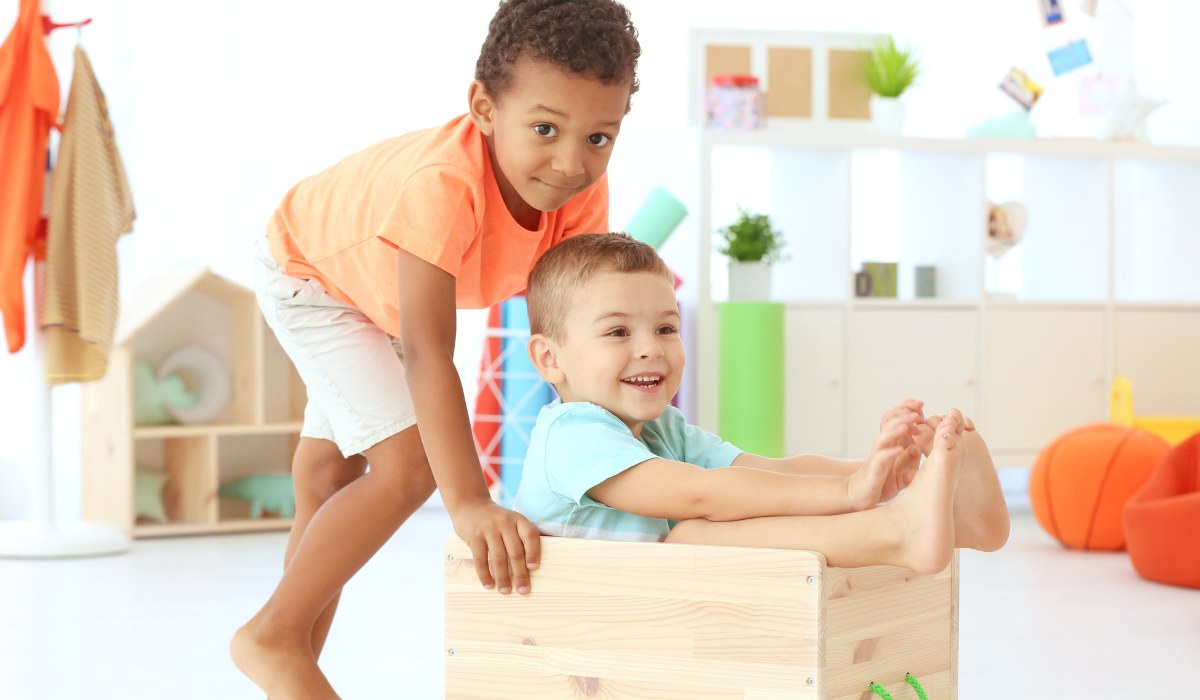Can You Be Autistic but Social? Myths and Facts

Key Points:
- Many individuals on the autism spectrum can be social and enjoy relationships, despite common stereotypes.
- Autism affects how people communicate and connect, not whether they want social interaction.
- ABA therapy can support social development for children with autism through structured and individualized approaches.
When we think about autism, we often picture someone who’s withdrawn or uninterested in socializing. But the reality is more complex. Many autistic individuals love being social, even if their way of connecting isn’t the same as their peers. Let’s break down the truth behind the question: "Can you be autistic but social?"
Can You Be Autistic but Social?
Yes, you can be autistic and still be social. Autism is a spectrum, and social ability varies widely among individuals. Some autistic people are outgoing, enjoy conversations, and actively seek friendships, even if their communication style is different from neurotypical peers.
Why Does This Myth Exist?
For years, media portrayals and outdated clinical definitions painted a narrow picture of autism—often showing individuals as withdrawn, emotionless, or completely detached from social situations. This has led to widespread misunderstandings about what autism actually looks like in everyday life.
In reality, autism spectrum disorder (ASD) encompasses a wide range of behaviors and abilities. Some people may struggle to initiate or maintain conversations, while others might talk endlessly about their favorite interests. Both are valid expressions of autistic communication, but they manifest in very different ways.

Why Is It Important to Understand This Myth?
If someone believes that social behavior excludes the possibility of autism, they may miss early signs or delay evaluation. This can mean children who need help don’t receive it—simply because they don’t “seem” autistic enough.
Just as neurotypical children express social interest in different ways, autistic children also have their own unique styles. Some may be energetic and outgoing, others more reserved—but both deserve the tools to connect in ways that feel natural to them.
That’s why it's so important to address the question, "Can you be autistic but social?" with clarity. Breaking this myth opens the door for earlier support, better relationships, and more accurate self-understanding for the child.
What Does “Being Social” Look Like for Autistic People?
Being social doesn’t look the same for everyone. A neurotypical child might enjoy loud birthday parties, while an autistic child prefers one-on-one playdates. Both are engaging socially, just on different terms.
Many autistic individuals have strong social motivation but experience challenges with social communication or interpreting social cues. For instance, they might:
- Prefer predictable conversations
- Struggle with small talk but love in-depth discussions
- Enjoy routine-based interactions like club meetings or online communities
It’s also essential to note that some children on the spectrum are naturally talkative, energetic, or eager to be around others. This may lead to confusion or delayed diagnosis because they don’t “fit the mold” people expect. But being outgoing doesn’t cancel out autistic traits—it simply highlights the diverse range of personalities within the autism spectrum.

What Are Signs of Social Strengths in Autistic Children?
Autistic children often display social strengths, even if they don’t always follow typical patterns. Recognizing these abilities can build confidence and improve interactions with peers.
Here are a few positive social traits you might observe in autistic children:
- Deep loyalty to friends or family
- Honest, straightforward communication
- Strong interest in shared hobbies or activities
- Consistent efforts to connect, even if awkward
- Enthusiasm for group involvement in structured settings
By building on these strengths, families and educators can support further growth in social areas, rather than trying to mold a child into neurotypical behaviors.
How Do Social Challenges Show Up in Autistic Kids?
Many autistic individuals mask or mimic social behaviors to fit in, which can be exhausting and unsustainable. They may appear social, but that doesn’t mean they don’t need support. Understanding their challenges without judgment is key to helping them navigate social environments more comfortably.
Here are some common social challenges that may be present even in a social autistic child:
- Difficulty reading body language or facial expressions
- Trouble understanding sarcasm, jokes, or implied meaning
- Talking too much about personal interests without noticing disinterest
- Struggling with back-and-forth conversation
- Avoiding eye contact, even while enjoying the interaction
- Challenges with unstructured group settings
However, it’s important to remember these behaviors are not intentional missteps—they reflect genuine differences in how autistic children interpret and engage with the world.
How Can Parents Help Their Social Autistic Child Thrive?
Social success doesn’t mean turning an autistic child into someone they’re not. It means helping them communicate more effectively, recognize social cues, and feel confident being themselves.
Small changes and daily practice can make a big difference. Here are a few parent-friendly strategies to support your child’s social growth:
- Model positive social behavior in everyday interactions
- Use visual aids or social stories to explain common social rules
- Create structured playdates with one or two familiar peers
- Practice role-playing to teach appropriate responses
- Celebrate effort, not just success, in social situations
Encouragement and support can go a long way. But for many families, professional help is key to navigating social development. ABA therapy is one of the most researched and effective options for teaching functional social skills to children with autism.
How ABA Therapy Supports Social Growth
Applied Behavior Analysis (ABA) therapy focuses on strengthening communication, behavior, and social skills in children with autism. Whether a child is naturally outgoing or more reserved, ABA helps them navigate social situations with confidence by teaching essential skills such as conversation, turn-taking, understanding emotions, and recognizing social cues.
At Child Builders ABA, we help children develop meaningful, lasting connections—on their own terms. Our therapists design individualized programs tailored to each child’s goals, using positive reinforcement to encourage progress in a supportive and nurturing way.
Contact us today to learn how our personalized ABA therapy programs in Massachusetts, Rhode Island, and New Hampshire can support your child’s unique social journey.



.jpg)

































































































